PUBLICATIES
VAN MARTIN DRENTHEN
Als er een pdf-bestand van een
publicatie
beschikbaar is, dan is deze te downloaden door te klikken op  .
.
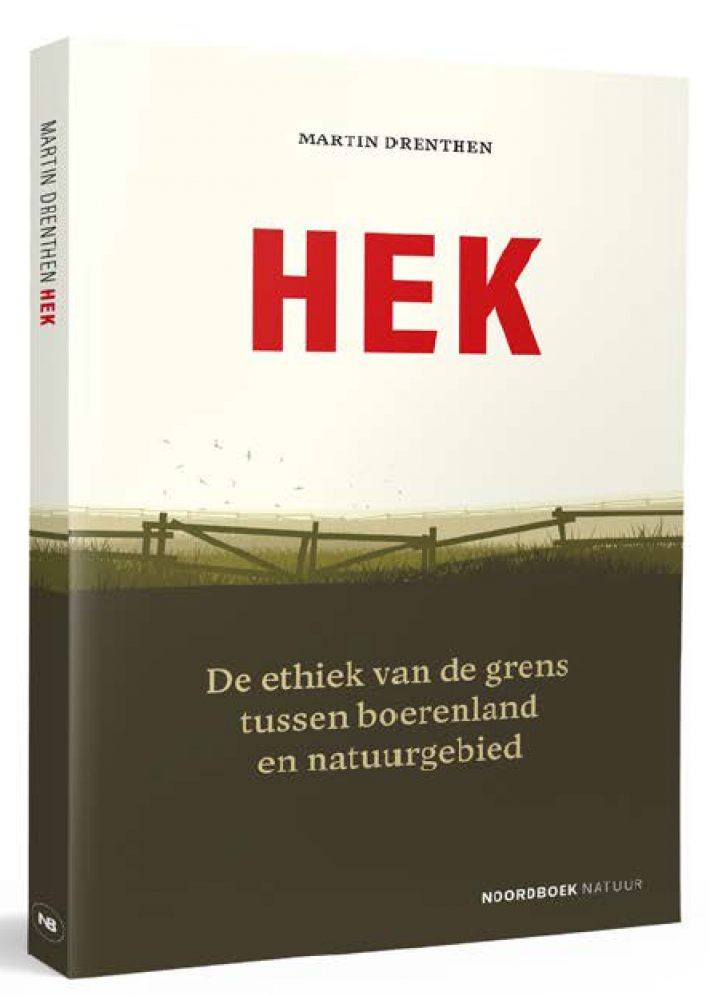
ALLE PUBLICATIES:
Boeken
- Drenthen, M. (2019). Natuur binnen of buiten het hek? Over de
spanning tussen veehouderij en natuurbeheer en de grens tussen natuur
en cultuurland. Preadvies voor de Nederlandse Vereniging voor Bioethiek
NVBe, mei
2019. ISBN 978-90-809012-6-1,
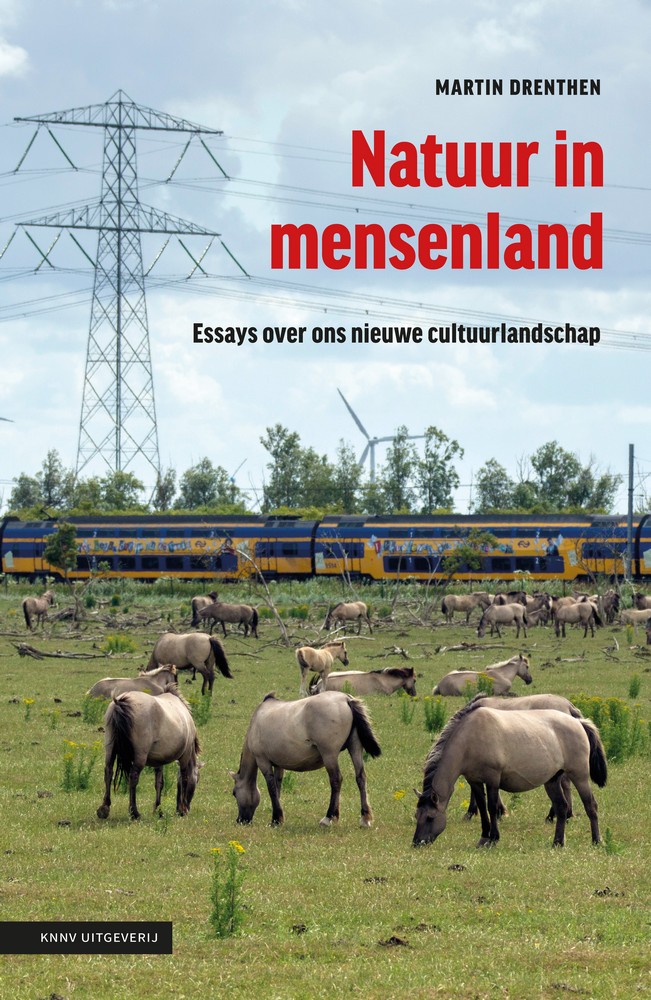
-
Drenthen, M. (2018). Natuur in mensenland. Essays
over ons nieuwe cultuurlandschap, KNNV
Uitgeverij,
2018. ISBN 978 90 5011 636 7.
Meer info: hier.
De
wolf is weer gesignaleerd! De meesten van ons kennen wolven alleen uit
sprookjes, het lied van drs. P en de dierentuin. Nu er wolven
gesignaleerd zijn langs onze oostgrens, merken we dat we feitelijk
weinig over hun levenswijze weten. Is het niet eng zo’n wild
dier
in ons kleine land? Kun je nog wel in de bossen wandelen en lopen onze
huisdieren geen gevaar? Vijf wolvendeskundigen geven in dit boekje
antwoord op alle vragen die er over wolven leven. Ze vertellen over het
gedrag van wolven, hun geschiedenis, én maken nieuwsgierig
naar
wat het kan betekenen als wolven zich hier vestigen.
Iedereen
heeft wel een plek die een speciale betekenis heeft. Vaak zijn dat
plekken in de natuur; plaatsen waarmee je je verbonden voelt of waaraan
je gehecht bent. Daarover gaat Plaats.
In een verzameling essays, columns en literaire
fragmenten geven uiteenlopende auteurs hun visie op het
begrip plaats in relatie tot de natuur. Filosofische beschouwingen,
nostalgische terugblikken en wetenschappelijk onderzoek laten zien hoe
het staat met onze verbondenheid met natuur en
landschap.>br>
Die
grote beuk waar je in kon klimmen, dat bankje aan het water of die laan
met oude kastanjes. Vraag je mensen naar hun favoriete plaats, dan
noemen velen een plek in de natuur. Een plek met een speciale
betekenis, die vertrouwd is en waar je je verbonden mee voelt. Plaats
beschrijft hoe het staat met onze verbondenheid met natuur en
landschap. Een breed scala aan auteur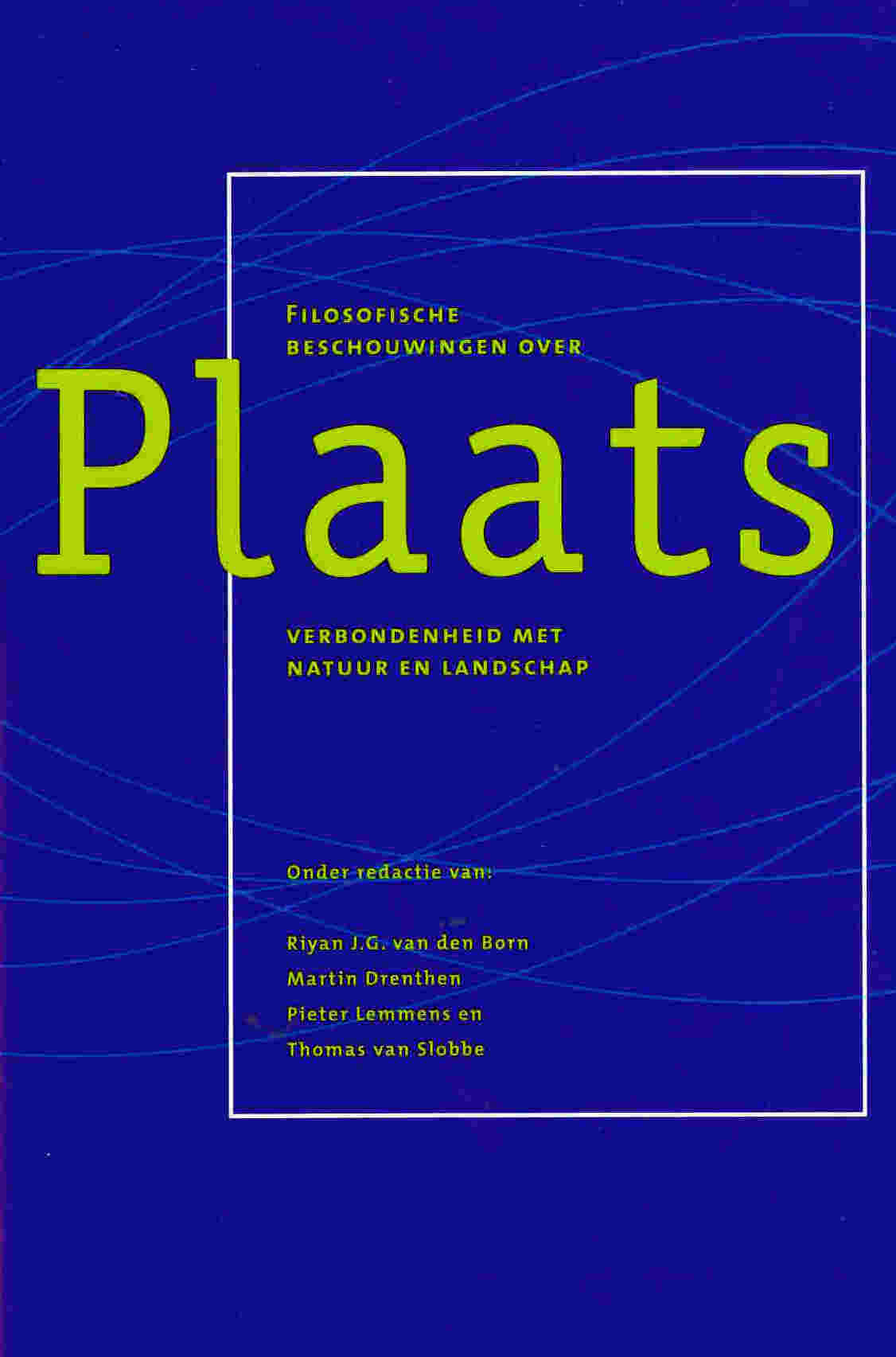 s
geeft in dit boek openhartige
bespiegelingen over de betekenis van het woord plaats. Sommigen blikken
terug op dat bijzondere huisje aan de bosrand uit hun jeugd of de
rivier waar ze in speelden. Anderen gaan in op het gevoel van
thuishoren of hoe de aanwezigheid van specifieke planten daaraan
bijdraagt. Ook een betoog over fietsen als ultieme manier om plaatsen
te ontdekken, ontbreekt niet in Plaats.
Ruime aandacht is er
ook voor wetenschappelijk onderzoek naar de beleving van
plaatsen.
Verbondenheid met natuur blijkt vooral te ontstaan in de kindertijd en
studententijd, en gevoelens ten opzichte van die plaats spelen een
belangrijke rol; plekken bieden rust, een mogelijkheid tot reflectie,
of zijn geschikt om nieuwe dingen te ontdekken. Plaatsen kunnen
onderdeel van je leven worden, je kunt ze eigen maken. Mensen voelen
zich verbonden met tal van uiteenlopende plaatsen, zoveel is duidelijk
na het lezen van Plaats.
Maar veel mensen missen ook die plekjes uit hun jeugd en de
verbondenheid met de natuur. Niet alleen veranderen plaatsen
steeds sneller, nee, de betekenis van plaats zelf lijkt te zijn
veranderd. Door nieuwe media ligt de hele wereld bij onze voordeur. We
reizen voor een weekendje naar New York alsof het de normaalste zaak
van de wereld. En op kantoor zitten we voortaan op een flexplek. De
hele planeet is tegenwoordig ons thuis, maar erg veel houvast lijkt dat
niet te geven. Het lijkt alsof onze samenleving de grond onder haar
voeten is kwijtgeraakt; we zijn – letterlijk - zonder vast
verblijfplaats, en juist daarom lijkt plaats zo belangrijk voor ons
geworden. Plaats
is
een boek vol filosofische beschouwingen en
kritische en bespiegelingen, maar het wil bovenal ook een
aansporing zijn. Om weer eens in die beuk te klimmen, op dat bankje te
zitten of heerlijk door de kastanjelaan te wandelen.
s
geeft in dit boek openhartige
bespiegelingen over de betekenis van het woord plaats. Sommigen blikken
terug op dat bijzondere huisje aan de bosrand uit hun jeugd of de
rivier waar ze in speelden. Anderen gaan in op het gevoel van
thuishoren of hoe de aanwezigheid van specifieke planten daaraan
bijdraagt. Ook een betoog over fietsen als ultieme manier om plaatsen
te ontdekken, ontbreekt niet in Plaats.
Ruime aandacht is er
ook voor wetenschappelijk onderzoek naar de beleving van
plaatsen.
Verbondenheid met natuur blijkt vooral te ontstaan in de kindertijd en
studententijd, en gevoelens ten opzichte van die plaats spelen een
belangrijke rol; plekken bieden rust, een mogelijkheid tot reflectie,
of zijn geschikt om nieuwe dingen te ontdekken. Plaatsen kunnen
onderdeel van je leven worden, je kunt ze eigen maken. Mensen voelen
zich verbonden met tal van uiteenlopende plaatsen, zoveel is duidelijk
na het lezen van Plaats.
Maar veel mensen missen ook die plekjes uit hun jeugd en de
verbondenheid met de natuur. Niet alleen veranderen plaatsen
steeds sneller, nee, de betekenis van plaats zelf lijkt te zijn
veranderd. Door nieuwe media ligt de hele wereld bij onze voordeur. We
reizen voor een weekendje naar New York alsof het de normaalste zaak
van de wereld. En op kantoor zitten we voortaan op een flexplek. De
hele planeet is tegenwoordig ons thuis, maar erg veel houvast lijkt dat
niet te geven. Het lijkt alsof onze samenleving de grond onder haar
voeten is kwijtgeraakt; we zijn – letterlijk - zonder vast
verblijfplaats, en juist daarom lijkt plaats zo belangrijk voor ons
geworden. Plaats
is
een boek vol filosofische beschouwingen en
kritische en bespiegelingen, maar het wil bovenal ook een
aansporing zijn. Om weer eens in die beuk te klimmen, op dat bankje te
zitten of heerlijk door de kastanjelaan te wandelen.
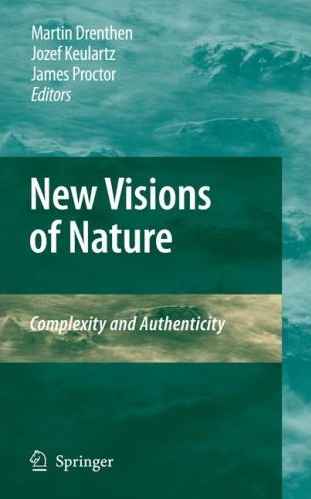 Contemporary
visions of nature
have been deeply affected by the ongoing interaction and
interpenetration of science, nature, and society. These new visions
appear to be more complex than older visions of nature and at the same
time they seem to challenge our notions of authenticity.
Contemporary
visions of nature
have been deeply affected by the ongoing interaction and
interpenetration of science, nature, and society. These new visions
appear to be more complex than older visions of nature and at the same
time they seem to challenge our notions of authenticity.
"New
Visions of Nature" focuses on the emergence of these new visions
of complex nature in three domains. The first selection of essays
reflects public visions of nature, that is,
nature as it is
experienced, encountered, and instrumentalized by diverse
publics. The second selection zooms in on micro nature and
explores the world of contemporary genomics. The final section returns
to the macro world and discusses the
ethics of place in present-day
landscape philosophy and environmental ethics.
The
contributions to this volume explore perceptual and conceptual
boundaries between the human and the natural, or between an
‘out there’ and ‘in here.’ They
attempt to specify how nature has been publicly and genomically
constructed, known and described through metaphors and re-envisioned in
terms of landscape and place. By parsing out and rendering explicit
these divergent views, the volume asks for a
re-thinking of our
relationship with nature.
Wetenschappelijke
publicaties (peer reviewed)
- Von
Essen, E., Drenthen, M. & Bhardwaj, M. (2023). How fences
communicate interspecies codes of conduct in the landscape: toward
bidirectional communication? Wildlife Biology. https://onlinelibrary.wiley.com/doi/10.1002/wlb3.01146 (open access)
- Drenthen, M. (2023). Finding common ground with wolves. Interspecies
communication in a shared landscapes. In: Convery et al. (eds) The Wolf:
Culture, Nature, Heritage (pp. 287-294), Boydell Press.

- Drenthen, M. (2022). Rewilding and the Ethics of Place. In: Sally Hawkins,
Ian Convery, Steve Carver & Rene Beyers (eds) (2022). Routledge Handbook of Rewilding (pp. 351-361), Routledge.

- Drenthen, M. (2022). Rewilding en de spanningsvolle dialoog met
traditionele natuurbescherming en landbouw. In K.
Arts, L. Bakker & A. Buijs (reds). Rewilding in Nederland. pp. 137-146 , KNVV 2022 (Open access publication, available for download here.)
- Drenthen, M. (2021). 'Coexisting with Wolves in Cultural Landscapes: Fences as Communicative Devices'. In: B. Bovenkerk & J. Keulartz (eds.) Animals in our midst :The Challenges of Co-existing with Animals in the Anthropocene. (pp. 425-444). Springer. (open access)

- Aarts, N. & Drenthen, M. (2020). Socio-Ecological Interactions
and
Sustainable Development—Introduction to a Special Issue.
Sustainability 12(17), 6967 (ISSN 2071-1050). https://www.mdpi.com/2071-1050/12/17/6967.
- Drenthen, M. (2018). Editorial
to a special issue on 'Rewilding in cultural layered landscapes'. Environmental
Values 27(4):
325-330. https://doi.org/10.3197/096327118X15251686827697
In
this
text, I discuss the
environmental education project "Legible Landscape", which aims to
teach inhabitants to read their landscape and develop a closer, more
engaged relationship to place. I show that the project's semiotic
persepctive on landscape legibility tends to hamper the
understanding of the moral dimension of reading landscapes, and argue
that a hermeneutical perspective is better suited to
acknowledge
the way that readers and texts are intimately connected.
Drenthen, M. (2011). Ecocentrism
as Anthropocentrism. Ethics, Place &
Environment 14(2)
(2011):151-154. 
In
'Respect for Everything', David Schmidt rightfully criticizes species
egalitarianism, buts neglects an even more fundamental problem.
Ecocentric egalitarianism is not only self defeating, but in fact
ultimately entails a morally dubious radical anthropocentrism. Perhaps
the morally most troubling aspect of anthropocentrism is not its
assumption that humans are superior to non-humans, but that what
matters to human beings is true in an absolute sense. Taylor's argument
that there are no valid moral reasons to consider humans superior,
assumes that it is in principle possible to compare the value of both
humans and non-humans, and that it would make sense to use normative
expressions such as ‘superior’ and
‘inferior’ objectively, e.g. outside the particular
context of a human ethical outlook. Yet, evaluative concepts only have
meaning within that context. To suggest that ethical concepts have
meaning in an absolute sense, implies that the human moral perspective
has absolute validity, and thus entails a radical form of
anthropocentrism..
De Groot, M., Drenthen, M. & De Groot, W. (2011). Public Visions of
the
Human/Nature Relationship and their Implications for Environmental
Ethics. Environmental Ethics 33(1), 25-44

A
social scientific survey on visions of human/nature relationships in
western Europe shows that the public clearly distinguishes not only
between anthropocentrism and ecocentrism, but also between two
nonanthropocentric types of thought, which may be called
“partnership with nature” and
“participation in nature.” In addition, the
respondents distinguish a form of human/nature relationship that is
allied to traditional stewardship but has a more ecocentric content,
labeled here as “guardianship of nature.” Further
analysis shows that the general public does not subscribe to an ethic
of “mastery over nature.” Instead, practically all
respondents embrace the image of guardianship, while the more radical
relationships of partnership and participation also received
significant levels of adherence. The results imply that ethicists
should no longer assume that the ethics of the public are merely
anthropocentric. Finally, they call into question the idea of a single
form of ecocentrism and favor a hermeneutic virtue ethics approach to
the study of the interface between ethics and action.
Drenthen, M. (2010). NIMBY and the Ethics of the
Particular. Ethics, Place &
Environment 14(3): 321-323. 

In
“Why Not
NIMBY?” Derek Turner and Simon Feldman fail to address that
many NIMBY protesters are not just concerned with concrete decision
making, but also introduce a ‘metaphysical’ issue
that liberal-democracy considers an inappropriate subject for the
political debate. The type of rationality dominating political
discourse requires one to reason in terms of 'common good' or personal
preferences that can be weighted against other preferences.
NIMBY’s do neither; rather they reframe the debate, starting
from a radically different approach to the meaning of place that
questions the very notion that particular places can be compared.
Drenthen, M. (2010). Fatal Attraction; Wildness in
Contemporary Film (致
命吸引:现代电影中的荒野 马丁·杜森,曹
昱). Journal
of Nanjing Forestry University(Humanities and Social Sciences Edition) 10(4), 63-71.
Translated by CAO Yu. Drenthen, M. (2009). Fatal Attraction;
Wildness in Contemporary Film. Environmental Ethics, 31(3): 297-315
Drenthen, M. (2009). Fatal Attraction;
Wildness in Contemporary Film. Environmental Ethics, 31(3): 297-315 
The
concept of wildness not only plays a role in philosophical debates, but
also in popular culture. Wild nature is often seen as a place outside
the cultural sphere where one can still encounter instances of
transcendence. Some writers and moviemakers contest the dominant
romanticized view of wild nature by telling stories that somehow show a
different harsher face of nature. In encounters with the wild and
unruly, humans can sometimes experience the misfit between their
well-ordered, human-centered, self-created world view and the otherness
of nature, and in doing so face, what Plumwood calls, "the view from
the outside." Three films —Gerry, Into
the Wildand Grizzly Man — deal
with contemporary encounters with wildness. What these works have in
common is the central theme of modern humans who are fascinated by wild
nature and seek experiences
unknown to those limited to the overly
cultivated life (psyche) of modern society. Another connecting theme,
however, is that any idealization of wildness is in itself deeply
problematic. All three films have fatal endings, which in turn
fascinates the contemporary viewers. These films show, first, that
wildness is conceived as a moral counterforce against the overly
civilized world; and, second, that fascination with this wildness has
itself become thoroughly reflexive, and refers to a moral meaning of
wildness that is both deeply paradoxical and utterly dark.
 Drenthen, M., Keulartz, J. & Proctor, J. (2009). Nature in Motion
(Introduction). In: M.
Drenthen, J. Keulartz, & J. Proctor (eds): New
Visions of Nature: Complexity and Authenticity,
Dordrecht: Springer 2009, pp. 3-18. (2009)
Drenthen, M. (2009). Developing
Nature along Dutch Rivers: Place or Non-place? In: M.
Drenthen, J. Keulartz, & J. Proctor (eds): New
Visions of Nature: Complexity and Authenticity,
Dordrecht: Springer 2009, pp 205-228. (2009)
Drenthen, M. (2009). Ecological
Restoration and Place Attachment; Emplacing nonplace?
Environmental Values , 18 (3): 285-312
Drenthen, M., Keulartz, J. & Proctor, J. (2009). Nature in Motion
(Introduction). In: M.
Drenthen, J. Keulartz, & J. Proctor (eds): New
Visions of Nature: Complexity and Authenticity,
Dordrecht: Springer 2009, pp. 3-18. (2009)
Drenthen, M. (2009). Developing
Nature along Dutch Rivers: Place or Non-place? In: M.
Drenthen, J. Keulartz, & J. Proctor (eds): New
Visions of Nature: Complexity and Authenticity,
Dordrecht: Springer 2009, pp 205-228. (2009)
Drenthen, M. (2009). Ecological
Restoration and Place Attachment; Emplacing nonplace?
Environmental Values , 18 (3): 285-312 
The
creation of new wetlands along rivers as an instrument to mitigate
flood risks in times of climate change seduces us to approach the
landscape from a ‘managerial’ perspective and
threatens a more place-oriented approach. How to provide ecological
restoration with a broad cultural context that can help prevent these
new landscapes from becoming non-places, devoid of meaning and with no
real connection to our habitable world. In this paper, I discuss three
possible alternative interpretations of the meaning of places and place
attachment in these ‘new nature’ projects, and show
how all three imply a different view on human identity and history.
Drenthen, M. (2007). New Wilderness Landscapes as Moral Criticism; A Nietzschean
Perspective on Our Fascination with Wildness. Ethical
Perspectives: Journal of the European Ethics Network 14(4): 371-403 
This paper
is a elaborated version of the paper 'Wilderness as a crital border
concept'. It appeared in a special issue of Ethical Perspectives
(edited by Glenn Deliège) about 'Environmental Philosophy
after the de(con)struction of nature', devoted to my work on wildernes
ethics. The issue further contains reflections on my work by Wim
Bollen, Glenn Deliège, Richard Kover, Nathan Kowlaski, Kingsley Goodwin
and Ulrich Melle. Abstacts and full-text versions can be found here.
Drenthen, M. (2005). Wildness as Critical Border Concept; Nietzsche and the Debate
on Wilderness Restoration, Environmental
Values, 14 (3):.317-337.
How can environmental
philosophy benefit from Friedrich Nietzsche's radical critique of
morality? In this paper, it is argued that Nietzsche's account of
nature provides us with a challenging diagnosis of the modern crisis in
our relationship with nature. Moreover, his interpretation of wildness
can elucidate our concern with the value of wilderness as a place of
value beyond the sphere of human intervention. For Nietzsche, wild
nature is a realm where moral valuations are out of order. In his work,
however, we can discern a 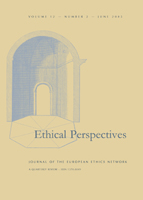 paradoxical moral concern with this wildness.
Wildness is a critical moral concept that reminds us of the fact that
our moral world
of human meanings and goals ultimately rests on a much grander,
all-encompassing natural world. Nietzsche's concept of wildness
acknowledges the value of that which cannot be morally appropriated.
Wild nature
confronts us with the limits of human valuing. Wildness as a concept
thus introduces the 'beyond' of culture into the cultural arena of
values.
paradoxical moral concern with this wildness.
Wildness is a critical moral concept that reminds us of the fact that
our moral world
of human meanings and goals ultimately rests on a much grander,
all-encompassing natural world. Nietzsche's concept of wildness
acknowledges the value of that which cannot be morally appropriated.
Wild nature
confronts us with the limits of human valuing. Wildness as a concept
thus introduces the 'beyond' of culture into the cultural arena of
values.
Drenthen, M. (2002). Nietzsche and the Paradox of Environmental Ethics:
Nietzsche’s View of Nature and Morality, New
Nietzsche Studies, 5 (1/2):
12-25. DOI: 10.5840/newnietzsche200251/22 Drenthen, M. & Kockelkoren, P. (1999). Het milieu van de
filosofen; 20 jaar milieufilosofie in Nederland, Filosofie
& Praktijk, 20(4):
197-191.
Drenthen, M. & Kockelkoren, P. (1999). Het milieu van de
filosofen; 20 jaar milieufilosofie in Nederland, Filosofie
& Praktijk, 20(4):
197-191. 
- An overview of 20 years of
environmental philosphy in the Netherlands
Vakpublicaties (hoofdstukken van boeken en
tijdschriftartikelen)
Rapporten
Kranten-en
tijdschriftartikelen
- Drenthen, M. (2019). 'De
eikenprocessierups en onze liefde voor de natuur.' De Gelderlander, 15
augustus 2019.
- Drenthen, M. &
Keulartz, J. (2011). 'Verdwijnen van soorten is juist de grootste ramp’.
Trouw, dinsdag 14 november 2011, (Podium
p.18)

- Drenthen, M. (2010). 'Wildernis is
niet voor watjes’. Trouw, vrijdag 9 april
2010, (Podium
p.19)

- Drenthen, M. (2007). 'Spelen in de natuur is geen
’topervaring’. Trouw, zaterdag
12 mei 2007, Podium

Interviews in kranten-en
tijdschriften
Mediaoptredens
op radio en televisie
In
voorbereiding:

![]() .
. 
 s
geeft in dit boek openhartige
bespiegelingen over de betekenis van het woord plaats. Sommigen blikken
terug op dat bijzondere huisje aan de bosrand uit hun jeugd of de
rivier waar ze in speelden. Anderen gaan in op het gevoel van
thuishoren of hoe de aanwezigheid van specifieke planten daaraan
bijdraagt. Ook een betoog over fietsen als ultieme manier om plaatsen
te ontdekken, ontbreekt niet in Plaats.
Ruime aandacht is er
ook voor wetenschappelijk onderzoek naar de beleving van
plaatsen.
Verbondenheid met natuur blijkt vooral te ontstaan in de kindertijd en
studententijd, en gevoelens ten opzichte van die plaats spelen een
belangrijke rol; plekken bieden rust, een mogelijkheid tot reflectie,
of zijn geschikt om nieuwe dingen te ontdekken. Plaatsen kunnen
onderdeel van je leven worden, je kunt ze eigen maken. Mensen voelen
zich verbonden met tal van uiteenlopende plaatsen, zoveel is duidelijk
na het lezen van Plaats.
Maar veel mensen missen ook die plekjes uit hun jeugd en de
verbondenheid met de natuur. Niet alleen veranderen plaatsen
steeds sneller, nee, de betekenis van plaats zelf lijkt te zijn
veranderd. Door nieuwe media ligt de hele wereld bij onze voordeur. We
reizen voor een weekendje naar New York alsof het de normaalste zaak
van de wereld. En op kantoor zitten we voortaan op een flexplek. De
hele planeet is tegenwoordig ons thuis, maar erg veel houvast lijkt dat
niet te geven. Het lijkt alsof onze samenleving de grond onder haar
voeten is kwijtgeraakt; we zijn – letterlijk - zonder vast
verblijfplaats, en juist daarom lijkt plaats zo belangrijk voor ons
geworden. Plaats
is
een boek vol filosofische beschouwingen en
kritische en bespiegelingen, maar het wil bovenal ook een
aansporing zijn. Om weer eens in die beuk te klimmen, op dat bankje te
zitten of heerlijk door de kastanjelaan te wandelen.
s
geeft in dit boek openhartige
bespiegelingen over de betekenis van het woord plaats. Sommigen blikken
terug op dat bijzondere huisje aan de bosrand uit hun jeugd of de
rivier waar ze in speelden. Anderen gaan in op het gevoel van
thuishoren of hoe de aanwezigheid van specifieke planten daaraan
bijdraagt. Ook een betoog over fietsen als ultieme manier om plaatsen
te ontdekken, ontbreekt niet in Plaats.
Ruime aandacht is er
ook voor wetenschappelijk onderzoek naar de beleving van
plaatsen.
Verbondenheid met natuur blijkt vooral te ontstaan in de kindertijd en
studententijd, en gevoelens ten opzichte van die plaats spelen een
belangrijke rol; plekken bieden rust, een mogelijkheid tot reflectie,
of zijn geschikt om nieuwe dingen te ontdekken. Plaatsen kunnen
onderdeel van je leven worden, je kunt ze eigen maken. Mensen voelen
zich verbonden met tal van uiteenlopende plaatsen, zoveel is duidelijk
na het lezen van Plaats.
Maar veel mensen missen ook die plekjes uit hun jeugd en de
verbondenheid met de natuur. Niet alleen veranderen plaatsen
steeds sneller, nee, de betekenis van plaats zelf lijkt te zijn
veranderd. Door nieuwe media ligt de hele wereld bij onze voordeur. We
reizen voor een weekendje naar New York alsof het de normaalste zaak
van de wereld. En op kantoor zitten we voortaan op een flexplek. De
hele planeet is tegenwoordig ons thuis, maar erg veel houvast lijkt dat
niet te geven. Het lijkt alsof onze samenleving de grond onder haar
voeten is kwijtgeraakt; we zijn – letterlijk - zonder vast
verblijfplaats, en juist daarom lijkt plaats zo belangrijk voor ons
geworden. Plaats
is
een boek vol filosofische beschouwingen en
kritische en bespiegelingen, maar het wil bovenal ook een
aansporing zijn. Om weer eens in die beuk te klimmen, op dat bankje te
zitten of heerlijk door de kastanjelaan te wandelen.
Contemporary visions of nature have been deeply affected by the ongoing interaction and interpenetration of science, nature, and society. These new visions appear to be more complex than older visions of nature and at the same time they seem to challenge our notions of authenticity.









 Drenthen, M., Keulartz, J. & Proctor, J. (2009). Nature in Motion
(Introduction). In: M.
Drenthen, J. Keulartz, & J. Proctor (eds): New
Visions of Nature: Complexity and Authenticity,
Dordrecht: Springer 2009, pp. 3-18. (2009)
Drenthen, M., Keulartz, J. & Proctor, J. (2009). Nature in Motion
(Introduction). In: M.
Drenthen, J. Keulartz, & J. Proctor (eds): New
Visions of Nature: Complexity and Authenticity,
Dordrecht: Springer 2009, pp. 3-18. (2009)  paradoxical moral concern with this wildness.
Wildness is a critical moral concept that reminds us of the fact that
our moral world
of human meanings and goals ultimately rests on a much grander,
all-encompassing natural world. Nietzsche's concept of wildness
acknowledges the value of that which cannot be morally appropriated.
Wild nature
confronts us with the limits of human valuing. Wildness as a concept
thus introduces the 'beyond' of culture into the cultural arena of
values.
paradoxical moral concern with this wildness.
Wildness is a critical moral concept that reminds us of the fact that
our moral world
of human meanings and goals ultimately rests on a much grander,
all-encompassing natural world. Nietzsche's concept of wildness
acknowledges the value of that which cannot be morally appropriated.
Wild nature
confronts us with the limits of human valuing. Wildness as a concept
thus introduces the 'beyond' of culture into the cultural arena of
values.


